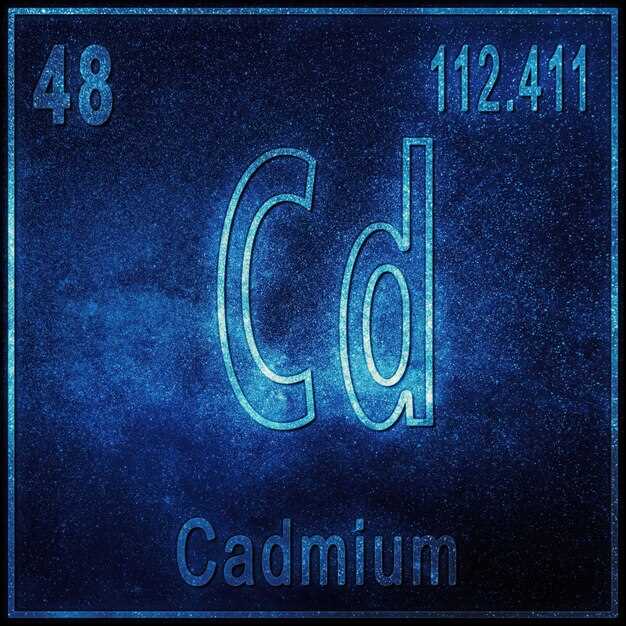
Are you looking for reliable information about Atorvastatin calcium?
Look no further!
Our team of experts has gathered all the essential information you need to know about Atorvastatin calcium, a commonly prescribed medication for managing high cholesterol. Whether you are a healthcare professional or a patient seeking more information, our comprehensive guide will provide you with all the necessary details.
What is Atorvastatin calcium?
Atorvastatin calcium is a medication that belongs to a group of drugs known as statins. It is used to lower cholesterol levels and reduce the risk of heart attack, stroke, and other cardiovascular diseases. By blocking the production of cholesterol in the body, Atorvastatin calcium helps maintain healthy cholesterol levels.
Benefits of our guide:
– Detailed information about the mechanism of action and pharmacokinetics of Atorvastatin calcium
– Explanation of the proper dosage and administration guidelines for patients
– Insight into potential side effects and drug interactions
– Guidance for healthcare professionals on monitoring and managing patients on Atorvastatin calcium
Don’t miss out on this invaluable resource!
Order your copy of our Atorvastatin calcium guide today!
Information about Atorvastatin Calcium
Atorvastatin Calcium is a medication that belongs to a class of drugs called statins. It is used to lower the levels of bad cholesterol (LDL) and triglycerides in the blood, while increasing the levels of good cholesterol (HDL).
Atorvastatin Calcium works by inhibiting an enzyme called HMG-CoA reductase, which is involved in the production of cholesterol in the liver. By blocking this enzyme, Atorvastatin Calcium helps to reduce the amount of cholesterol that is synthesized, leading to a decrease in LDL levels.
In addition to lowering cholesterol levels, Atorvastatin Calcium also has other cardiovascular benefits. It helps to improve blood flow and reduce inflammation in the blood vessels, which can help to prevent heart attacks, strokes, and other cardiovascular diseases.
It is important to note that Atorvastatin Calcium is not a cure for high cholesterol or cardiovascular diseases, but rather a treatment option that can help to manage these conditions. It should be used in conjunction with a healthy diet, regular exercise, and other lifestyle modifications.
Who should take Atorvastatin Calcium?
Atorvastatin Calcium is typically prescribed to individuals who have high levels of LDL cholesterol or triglycerides, or who have a history of cardiovascular diseases such as heart attack or stroke. It can also be prescribed to individuals who are at high risk of developing these conditions, such as those with diabetes or high blood pressure.
However, Atorvastatin Calcium is not suitable for everyone. It should not be taken by individuals who are allergic to statins, who have liver or kidney disease, or who are pregnant or breastfeeding. It is important to consult with a healthcare professional before starting Atorvastatin Calcium to determine if it is the right medication for you.
What is Atorvastatin Calcium?
Atorvastatin Calcium is a medication that is commonly used to treat high cholesterol. It belongs to a class of drugs called statins, which are known for their ability to lower cholesterol levels in the body. Atorvastatin Calcium works by inhibiting an enzyme called HMG-CoA reductase, which plays a key role in the production of cholesterol in the liver.
By blocking this enzyme, Atorvastatin Calcium reduces the amount of cholesterol that is synthesized in the liver, leading to a decrease in the overall levels of cholesterol in the bloodstream. This can help to prevent the formation of plaque in the arteries and reduce the risk of heart disease and other cardiovascular conditions.
Atorvastatin Calcium is typically taken orally in tablet form and is available in various strengths. It is important to take the medication as prescribed by a healthcare professional and to follow a healthy diet and exercise routine to maximize its effectiveness.
Note: Atorvastatin Calcium is a prescription medication and should only be taken under the guidance of a healthcare professional.
Disclaimer: This information is not intended to replace professional medical advice. Always consult a healthcare professional before starting any new medication.
How does Atorvastatin Calcium work?
Atorvastatin Calcium works by blocking the enzyme in your liver that is responsible for producing cholesterol. It is a type of medication known as a statin, which is used to lower the levels of LDL cholesterol (“bad” cholesterol) in your blood. By inhibiting this enzyme, Atorvastatin Calcium helps to reduce the amount of cholesterol that is made in the liver.
When you take Atorvastatin Calcium, it is absorbed into your bloodstream and then carried to your liver. Once there, it works to decrease the production of cholesterol by inhibiting the action of the enzyme. This leads to a decrease in the amount of LDL cholesterol in your blood.
In addition to lowering LDL cholesterol, Atorvastatin Calcium also increases the levels of HDL cholesterol (“good” cholesterol) in your blood. It does this by enhancing the uptake and clearance of LDL cholesterol from your blood. This is beneficial as HDL cholesterol helps to remove LDL cholesterol from your arteries, reducing the risk of plaque buildup and heart disease.
Overall, Atorvastatin Calcium is an effective medication for managing high cholesterol levels. By reducing LDL cholesterol and increasing HDL cholesterol levels, it helps to prevent the development of atherosclerosis and reduce the risk of cardiovascular events such as heart attack or stroke.
Possible side effects of Atorvastatin Calcium
While Atorvastatin Calcium is generally well-tolerated, there are some potential side effects that you should be aware of. It is important to note that not all individuals will experience these side effects, and they may vary in severity.
Common side effects include:

– Headache
– Muscle and joint pain
– Nausea
– Diarrhea
– Upset stomach
Less common but more serious side effects include:

– Liver problems, including yellowing of the skin or eyes
– Muscle breakdown, which can lead to kidney problems
– Allergic reactions, such as rash, itching, or hives
– Memory loss or confusion
– Diabetes, especially in individuals with risk factors such as high blood sugar or obesity
If you experience any of these side effects or any other unusual symptoms while taking Atorvastatin Calcium, it is important to consult your healthcare provider. They can help determine the appropriate course of action and may suggest alternative treatment options if necessary.
It is also important to mention that Atorvastatin Calcium may interact with other medications, so it is essential to inform your healthcare provider about all the medications you are currently taking.
In conclusion, while Atorvastatin Calcium can provide significant benefits in managing cholesterol levels and reducing the risk of heart disease, it is crucial to be aware of the possible side effects and to seek medical advice if you experience any concerning symptoms.
Possible side effects of Atorvastatin Calcium
While Atorvastatin Calcium is generally well-tolerated, there are some potential side effects that you should be aware of:
Common side effects:
1. Muscle pain or weakness
2. Diarrhea
3. Upset stomach
4. Joint pain
5. Nausea
Less common side effects:
1. Headache
2. Dizziness
3. Insomnia
4. Rash
5. Liver problems
Rare side effects:
1. Memory loss or confusion
2. Depression
3. Muscle breakdown
4. Allergic reactions
5. Increased blood sugar levels
It is important to note that these side effects may occur, but not everyone who takes Atorvastatin Calcium will experience them. If you do experience any of these side effects, it is recommended that you consult with your healthcare provider.
IMPORTANT: This is not a complete list of side effects. For a full list of side effects, please refer to the medication guide or consult with your healthcare provider.
Who should not take Atorvastatin Calcium?
Atorvastatin Calcium may not be suitable for everyone. It is important to inform your doctor if you have certain medical conditions or if you are taking certain medications, as they may interact with Atorvastatin Calcium.
| Conditions | Medications |
|---|---|
| If you are allergic to atorvastatin or any other ingredients in the medication. | If you are currently taking cyclosporine, gemfibrozil, fenofibrate, or any other medications for high cholesterol or triglycerides. |
| If you have a history of liver disease or abnormal liver function tests. | If you are taking any medications that are known to interact with Atorvastatin Calcium, such as some antibiotics, antifungals, or HIV medications. |
| If you are pregnant or planning to become pregnant. | If you are breastfeeding or planning to breastfeed. |
| If you have a history of kidney disease or kidney problems. | If you have uncontrolled hypothyroidism or high thyroid hormone levels. |
| If you drink alcohol regularly or excessively. | If you have a history of muscle problems or have ever had muscle pain, weakness, or tenderness while taking a different cholesterol-lowering medication. |
It is important to discuss your medical history and any medications you are currently taking with your doctor before starting Atorvastatin Calcium to ensure that it is safe and appropriate for you.
